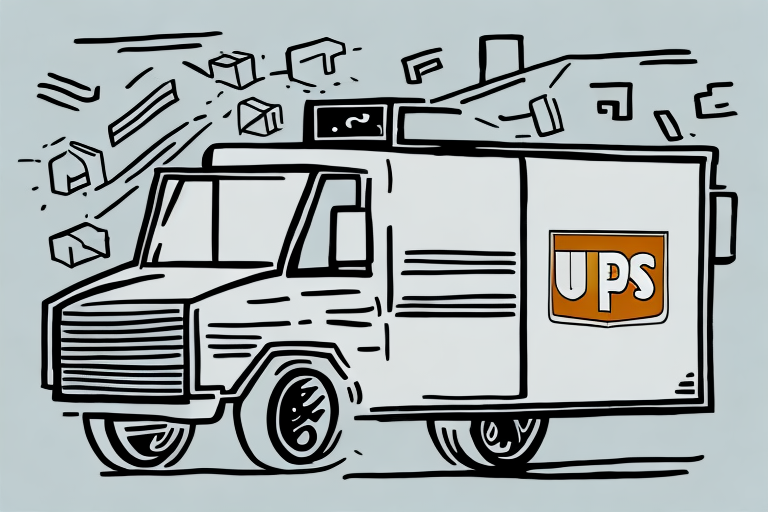Using UPS to Deliver FedEx Packages: An Overview
Many individuals and businesses often wonder if they can utilize a competing carrier, such as UPS, to transport packages typically handled by FedEx. While it is technically possible, understanding the practical implications is crucial. This article explores the feasibility, legality, and potential risks of having UPS deliver FedEx packages, compares the shipping policies of both carriers, and examines the broader impact on the shipping industry.
Legal Implications of Using Competing Carriers
Using UPS to deliver a FedEx package is generally legal; however, it's essential to adhere to the regulations and policies set by both carriers. According to FedEx’s legal compliance guidelines, each carrier operates under specific terms of service that govern package handling, liability, and delivery obligations.
Violating these terms by misrepresenting the carrier or mishandling packages can lead to legal consequences, including fines or service termination. Therefore, it's advisable to thoroughly review the policies of both UPS and FedEx before attempting to use a competing carrier for package deliveries.
Comparing Shipping Policies: UPS vs. FedEx
Service Levels and Delivery Guarantees
Both UPS and FedEx offer a variety of service levels, ranging from overnight to standard ground shipping. UPS provides guaranteed delivery times for certain services, offering refunds if delivery commitments are not met. In contrast, FedEx emphasizes reliability and speed but may not always offer monetary guarantees for delivery times.
Package Size and Weight Restrictions
Both carriers set limits on package size and weight. UPS typically accepts packages up to 150 pounds and a maximum size of 165 inches in combined length and girth. FedEx also accepts packages up to 150 pounds for most services, with some residential freight options allowing up to 2,200 pounds. Understanding these restrictions is vital when deciding which carrier to use for your package deliveries.
Additionally, FedEx allows packages up to 119 inches in length or 165 inches in combined length and girth, while UPS maintains consistent size restrictions across its services.
Pricing Structures
Both UPS and FedEx have competitive pricing structures, which are influenced by factors such as package weight, dimensions, destination, and the chosen service level. It is recommended to use the carriers' online calculators or third-party shipping comparison tools to determine the most cost-effective option for your specific needs.
For instance, during peak seasons, prices may fluctuate due to increased demand, so proactive rate comparisons can help in selecting the best carrier for your budget.
Advantages and Disadvantages of Using UPS for FedEx Deliveries
Pros
- Cost Savings: In some cases, using UPS may offer cheaper rates compared to FedEx, depending on the package specifics and service levels chosen.
- Service Availability: UPS might have better coverage in certain regions, ensuring timely deliveries where FedEx may have limited services.
- Alternative Delivery Options: UPS offers various delivery options, such as Saturday delivery and guaranteed delivery times, which can be advantageous for time-sensitive shipments.
Cons
- Tracking Inconsistencies: When using a different carrier, tracking information may not sync seamlessly, making it harder to monitor package status across platforms.
- Potential for Delays and Damage: Competing carriers may not be as familiar with the package’s handling requirements, increasing the risk of delays or damage.
- Liability and Claims: Filing claims for lost or damaged packages can be more complicated when a different carrier is involved, potentially leading to reimbursement challenges.
How Package Delivery Operates Between Competing Carriers
Last-Mile Delivery Partnerships
In certain scenarios, such as remote locations or during high-demand periods, carriers like UPS and FedEx may partner with local delivery services to handle the last mile of package delivery. This subcontracting ensures packages reach their destinations efficiently, even when the primary carrier lacks direct coverage.
Seasonal and Volume-Based Collaborations
During peak seasons, such as the holiday period, both UPS and FedEx experience surges in package volumes. To manage this increased demand, they may enter into temporary agreements with other carriers or third-party logistics providers to maintain delivery timelines and service quality.
Best Practices for Sending Packages with Competing Shipping Companies
Compare Rates and Services
Before deciding to use a competing carrier, it’s essential to compare rates and services to ensure you’re receiving the best value. Utilize online shipping calculators provided by UPS and FedEx to evaluate costs based on your package’s specifications.
Proper Packaging and Documentation
Regardless of the carrier you choose, proper packaging is crucial to prevent damage during transit. Use sturdy materials and secure packing methods. Additionally, ensure all necessary documentation, such as shipping labels and customs forms for international shipments, is accurately completed to avoid delays.
Monitor and Track Your Package
Utilize the tracking tools available from both UPS and FedEx to monitor your package’s progress. Regularly check for any updates or notifications to address potential issues promptly.
The Impact of Competing Package Deliveries on the Shipping Industry
Sustainability and Environmental Considerations
The increase in package deliveries has raised significant concerns regarding environmental sustainability. Both UPS and FedEx are investing in green technologies, such as electric delivery vehicles and optimized routing algorithms, to reduce their carbon footprint. Consumers can also contribute by opting for eco-friendly shipping options when available.
Innovation Driven by Competition
Competition between carriers like UPS and FedEx has spurred continuous innovation in the shipping industry. Advances such as drone deliveries, automated sorting facilities, and enhanced real-time tracking systems are direct responses to the need for faster and more reliable shipping services demanded by customers.
The Future of Shipping: Collaboration vs. Competition
As the shipping industry evolves, the balance between collaboration and competition among carriers will shape its future. While direct competitors like UPS and FedEx primarily focus on outperforming each other, strategic partnerships may emerge to address common challenges such as sustainability, technology integration, and global logistics complexities.
Ultimately, the decision to collaborate or continue competing will depend on how carriers adapt to changing market dynamics, customer expectations, and global economic conditions. Staying informed about these trends is essential for businesses and consumers alike to make informed choices regarding their shipping needs.
Conclusion
While it is possible to use UPS to deliver a FedEx package, it may not always be the most efficient or cost-effective option. Understanding the legal implications, comparing shipping policies, and weighing the pros and cons are essential steps before deciding to use a competing carrier. Additionally, adhering to best practices can help mitigate potential risks associated with cross-carrier deliveries. As the shipping industry continues to grow and innovate, staying informed will ensure that you make the best decisions for your package delivery needs.




















